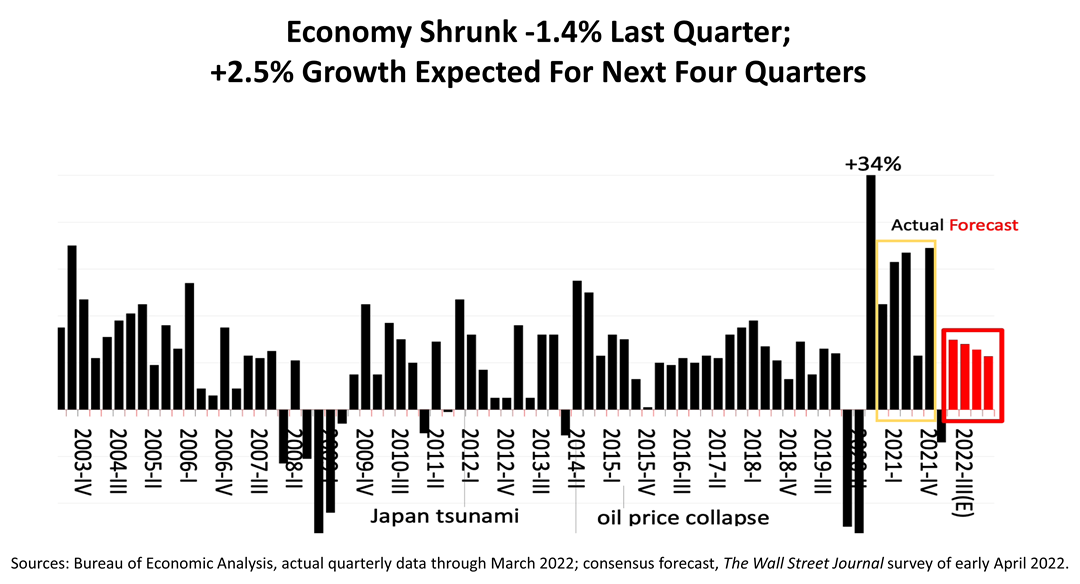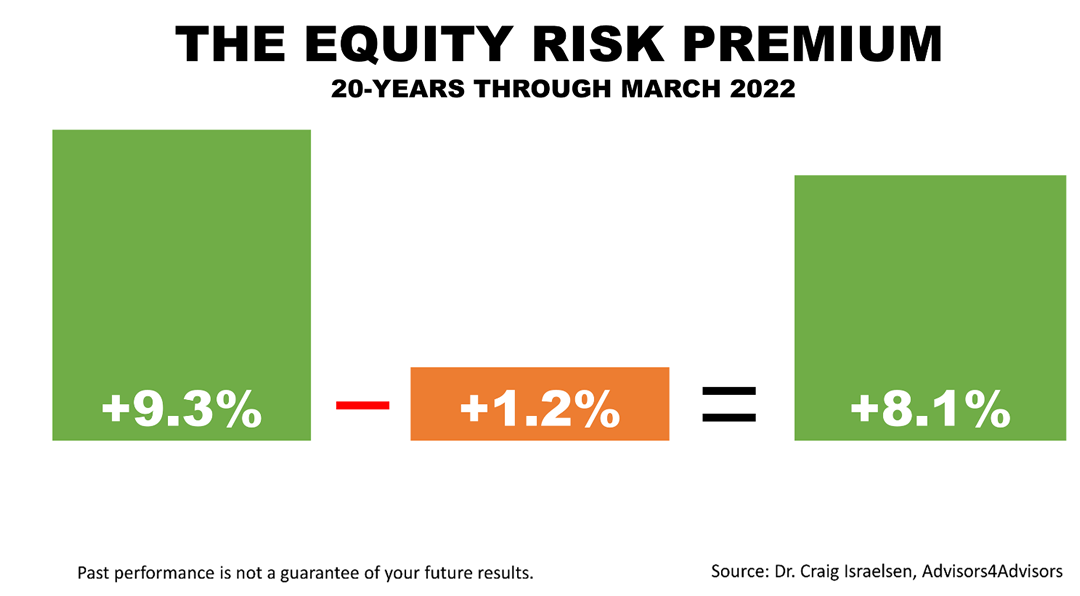The economy shrank 1.4% last quarter but is expected to grow 2.7% in the next four quarters. Economist Fritz Meyer, at a webinar for financial professionals today, called the state of financial economic conditions “cognitive dissonance,” which is defined as the discomfort felt when two or more thoughts contradict each other. Here’s a factual perspective of the clashing cognitions of financial economic conditions currently. 
The most recent consensus forecast of leading economists surveyed by The Wall Street Journal was for a 2.7% quarterly average growth rate through March 31,2023. The survey was conducted two-and-a-half months after Russia invaded Ukraine. By then, inflation was at a 40-year high, due to the higher price of oil and lingering pandemic-related supply chain problems. However, the consensus forecast of the 60 economists surveyed by The Journal was for a stronger growth rate in the next four quarters than the 2.5% averaged in the four quarters before the pandemic. That’s strong growth expected. The consensus of leading economists could be wrong. No one knows for certain if the Fed will be able to eliminate raging inflation without tipping the economy into a recession. That kind of risk comes with owning stocks. If the situation seems grim, be glad for it! 
Because the stock market is risky, equities pay a higher return than less risky investments, according to modern portfolio theory, which is taught at colleges and universities worldwide. To be clear, rolling over 90-day U.S. Treasury Bills for the 20 years ended on March 31, 2022, paid an average annually of 1.2%, while equities paid 9.3% annually in the same period. Over the past 20 years, equities paid an average premium of 8.1% annually for taking the risk of owning the S&P 500 through nervous moments like this. Nothing contained herein is to be considered a solicitation, research material, an investment recommendation, or advice of any kind, and it is subject to change without notice. Any investments or strategies referenced herein do not take into account the investment objectives, financial situation or particular needs of any specific person. Product suitability must be independently determined for each individual investor. Tax advice always depends on your particular personal situation and preferences. You should consult the appropriate financial professional regarding your specific circumstances.
The material represents an assessment of financial, economic and tax law at a specific point in time and is not intended to be a forecast of future events or a guarantee of future results. Forward-looking statements are subject to certain risks and uncertainties. Actual results, performance, or achievements may differ materially from those expressed or implied. Information is based on data gathered from what we believe are reliable sources. It is not guaranteed as to accuracy, does not purport to be complete, and is not intended to be used as a primary basis for investment decisions.
This article was written by a professional financial journalist for Advisor Products and is not intended as legal or investment advice. |